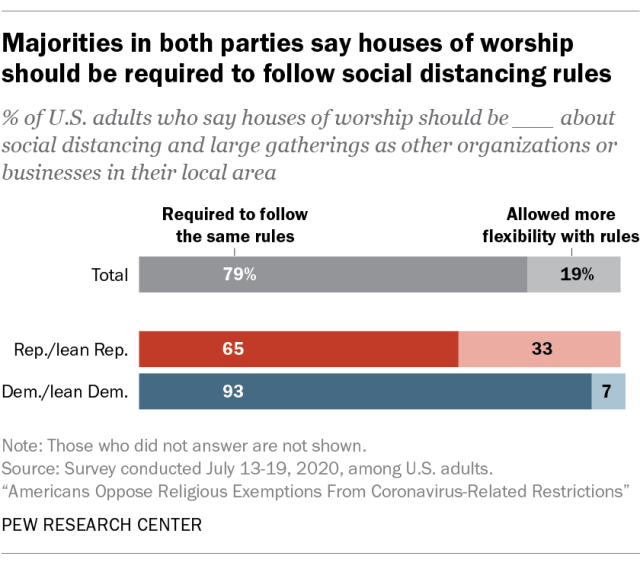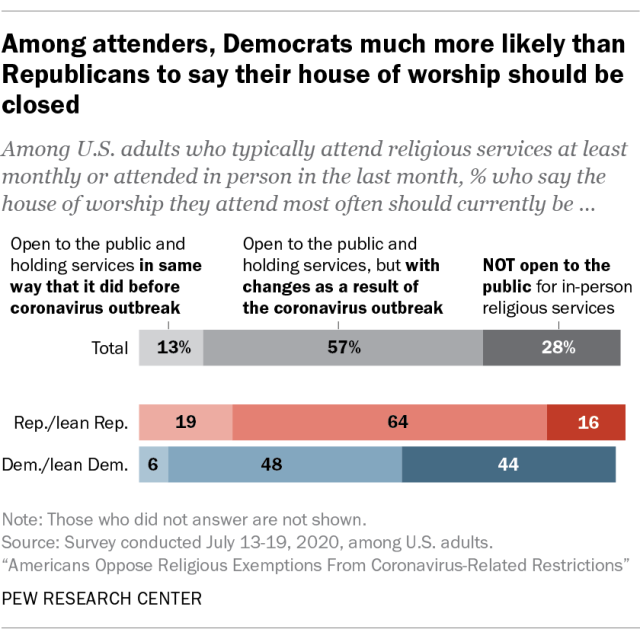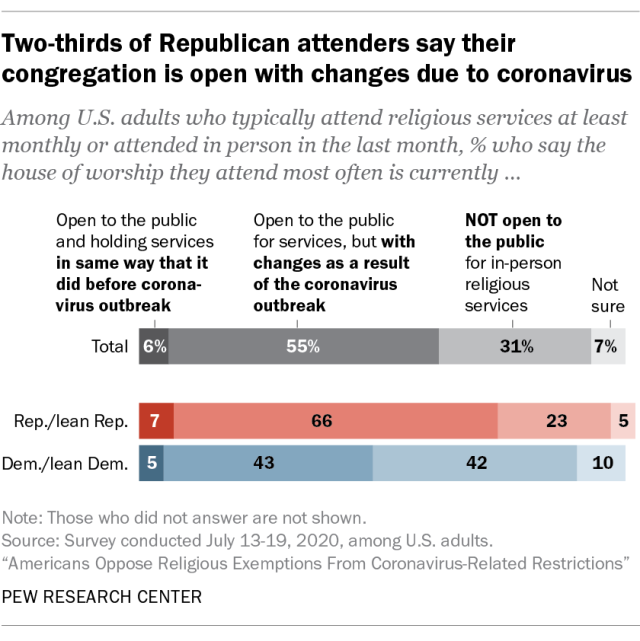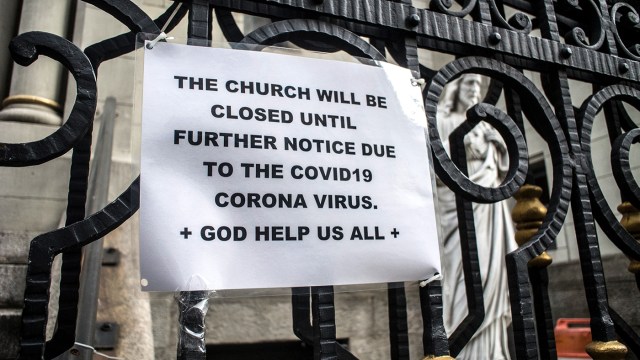
Republicans and Democrats differ in their opinions on many aspects of the coronavirus outbreak, including their levels of concern about the safety of various activities. These partisan gaps extend to views about religious practices during the pandemic – although majorities in both parties say that houses of worship should be subject to virus-related restrictions, according to a new Pew Research Center survey.
Two-thirds of Republicans and independents who lean toward the Republican Party say that houses of worship should be required to follow the same rules about social distancing and large gatherings as other organizations and businesses in their local area, compared with a third who say they should be allowed more flexibility. An even bigger majority of Democrats and Democratic leaners – 93% – believe houses of worship should be required to follow local rules about social distancing and large gatherings without exemptions from coronavirus-related regulations.
When asked what they think their own house of worship should be doing, the survey finds substantial differences between Republican and Democratic religious attenders – but majorities in both groups favor some level of caution about the virus. (In this analysis, regular attenders are those who said before the pandemic that they typically attend services at least once or twice a month, as well as those who attended in person in the last month prior to when the survey was conducted July 13 to 19.)
Pew Research Center conducted this survey to help understand how the coronavirus outbreak has affected the worship habits of Americans. For this analysis, we surveyed 10,211 U.S. adults, including 3,756 who said in a 2019 survey that they typically attend religious services at least once a month or who said in the new survey that they attended in-person religious services during the past month. The survey was conducted from July 13 to 19, 2020. All respondents to the survey are part of Pew Research Center’s American Trends Panel (ATP), an online survey panel that is recruited through national random sampling of residential addresses. This way nearly all U.S. adults have a chance of selection. The survey is weighted to be representative of the U.S. adult population by gender, race, ethnicity, partisan affiliation, education and other categories. For more, see the ATP’s methodology and the methodology for this report.
Here are the questions used in this analysis.
Among regularly attending Democrats, 44% think their house of worship should not be open to the public at all – much larger than the share of Republicans who say the same (16%). But most Republican attenders (64%) say that their house of worship should be open with precautions in place due to the coronavirus outbreak, such as requiring that congregants remain 6 feet apart or wear masks, or limiting the number of people who can attend at one time. About half of Democratic congregants (48%) prefer this approach.
One-in-five Republicans and GOP leaners think that their house of worship should be open to the public and holding services in the same way that it did before the coronavirus outbreak, although they are three times as likely as Democrats to hold this opinion (19% vs. 6%).
Opinions on what houses of worship should be doing largely reflect what respondents say their congregations are doing in practice. Among those who attended in-person services in the last month or who said before the outbreak that they attend at least monthly, there are similar partisan differences in the current operating status of the house of worship they attend most often.
Two-thirds of Republican attenders say their house of worship is open to the public with changes as a result of the coronavirus outbreak, while 43% of Democrats say this. Democratic congregants are more likely than Republicans to say that their houses of worship are closed altogether (42% vs. 23%). And small shares in both parties say that their houses of worship are currently open to the public and operating in the same way that they did before the outbreak (7% of Republicans say this, as do 5% of Democrats).
Democrats and Republicans also differ in their feelings about their own personal safety and in their recent religious attendance habits. For instance, Democrats are far less confident than Republicans in their ability to safely attend services in person: Eight-in-ten Republican congregants (79%) say that they are “very” or “somewhat” confident that they could safely attend religious services without catching or spreading the coronavirus, while 44% of Democratic attenders agree. And among partisans who attend services regularly (according to a 2019 survey), far fewer in each group say they have actually attended in-person religious services in the past month, but, again, Republicans (42%) are twice as likely as Democrats (19%) to report doing so.
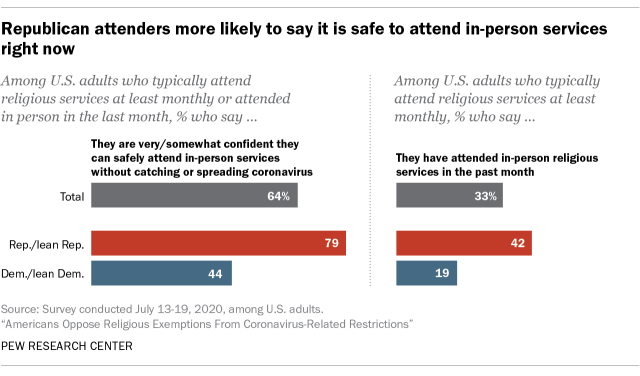
These partisan breaks are in line with racial and ethnic differences in views toward worship amid the pandemic. Black and Hispanic attenders are more cautious about the safety of in-person services during the outbreak than white attenders, and 54% of Democrats who regularly attend religious services are Black or Hispanic, while most Republican attenders (78%) are white.
And these patterns are also in line with partisans’ views on whether the coronavirus is a threat to their health. Half of Democrats overall view the virus as a major threat to their personal health, while just 29% of Republicans say the same.
Note: Here are the questions used in this report, along with responses, and its methodology.



